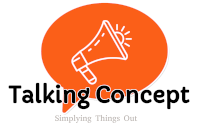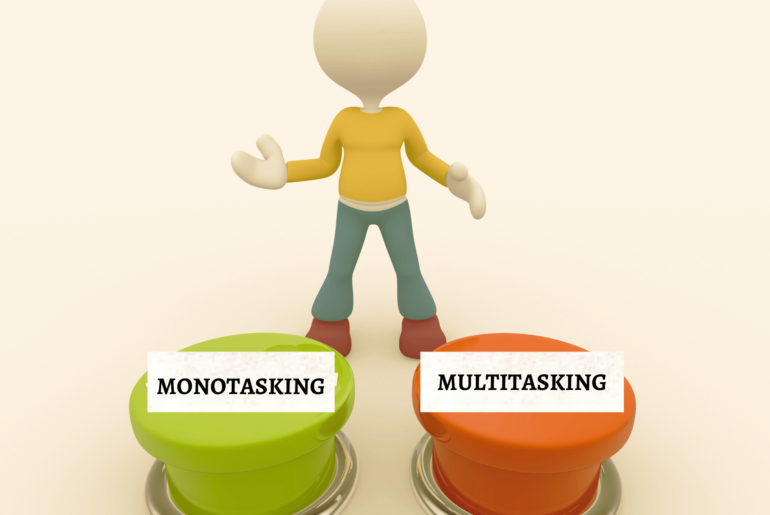We all know about time management. In simple terms, it is a rule to allocate different tasks in a given time; so that we can perform more work efficiently. It is often the case, even after following the rules of time management, we miss our goals. One of the reasons this can happen is because we are poorly managing our Focus.
We have been hearing about time management for a very long time. Most of the people know about it, some try to follow it, while a few call it a ‘mantra’ of their success. A typical time-management strategy for a student may sound something like this; waking up at 6:00 AM, performing morning exercises, making a study plan for the day, getting into studies at 8 AM and the first study session will continue for straight 3 hours and so on. It’s a good thing, and one must follow it.
We get a limited amount of time in a day and it’s a brilliant idea to allocate time for studying, exercising, traveling, reading books, friends, and family, etc. And it is indeed necessary!
It’s not just Time-management

Now, even after following the rules of time management, most of us fail to apply them completely. It is often the case that people still have incomplete tasks at the end of the day. For example, in a study session for three hours; someone planned to complete through topics A to B in the textbook, along with solving a few example problems.
The ideal case would be that we achieve what we have planned for. But for most of the students, the situation is that they are just midway in their planned tasks (or just more than that). From this point, there is only one option; to complete the rest of the portion in the next study session. This can be too overwhelming and sometimes frustrating for students as their sincere efforts to invest time properly do not yield desired results.
One of the prominent reasons why time management didn’t work well in this situation is because you might have focused on less important things. Therefore, rather than following the straight and accurate path, you were moving to and fro from your actual goals. As a result, it took more time to finish a planned task.
There is a need to manage our attention such that we stick to that straight path and do not waste our time and efforts deviating from it. We must identify, what is the highest priority work that deserves our attention and what does not. Few students who can follow time-management well: knowingly or unknowingly know this art of managing attention. Therefore, to fully utilize the time, one must use one’s attention wisely.
What is Attention Management?
“Focused mental engagement on a particular item of information. Items come into our awareness, we attend to a particular item, and then we decide whether to act.”
Thomas H. Davenport
In the simplest terms, attention management is a skill to efficiently choose to focus on things that matter the most and do not engage in the lesser priority things. Let’s understand this by an example,
In a three-hour study session, you aimed to cover from Topic A to B of your textbook. Now, ask yourself this question. What are the highest priority things I need to do to achieve this goal?

The answer can be; try reading and understanding the text, formulas, examples and lastly solve the problems. The list of Lower prioritized things can be; to rewrite the same things given in the textbook to your notes (passive note-taking), respond to your phone’s notification, start reading Topic X, start browsing the web, etc.
So, attention management is the strategy to keep the focus only on the top prioritized things and leave the rest unattended. Though it may sound simple, many are unable to fix their attention to one thing for a long time. Uninterrupted focus on a single task is a skill that requires much practice to master.
Attention Management is a vital tool and its benefits are not just limited to studies and work. It can be easily applied to other day-to-day tasks as well. The priority of the task is decided, based on the very instant of time. One who has mastered attention management can wisely choose the right tasks to focus on, without unnecessary multi-tasking. For example, in the examination hall, the highest priority task is to think and write the answers to the given questions, in such a way that it has no error. In the other case, when you are attending a birthday party, the highest priority thing is to focus on the people and having fun rather than worrying about the past or future important tasks. Thus through attention management, one can efficiently choose to focus on the right things at the right time.
Also read: Why am I addicted to my phone?
How to Practice Attention Management?
I believe, for a student, attention management is the path to achieving the goals set by the time-management. So before you start following the steps of attention management, make sure you have wrapped your task in time management first.
Scientific studies have proven that there is a limited number of things we can focus on. Along with that, continuously switching tasks make us more tired than the single task itself.
To explain this point and to give you an example of a practical way of performing attention management, let me devise a mathematical model. Suppose, your focus is quantizing into a fundamental unit, say ‘focus points’. Every task you do, consumes a finite amount of these focus points. As you have a limited amount of them to use, let us assume that one can only use 100 focus points in 3 hours.
Below are the tasks and the maximum focus points required to complete them:
- Reading text: 20 focus points
- Writing in notes: 25 focus points
- Solving problem: 5 focus points per problem
- Switching to a non-related task: 10 focus points
- Talking: 5 focus points
The above numbers are just an assumption and completely my mind’s creation. But the model’s underlying principle is based on the fact that we have a limited supply of focus. When you are out of your focus points, you feel tired and hence unable to study. To recover back your focus point, you need a good sleep.
For this model, we will be considering the same example, where a student has planned to study from Topic A to B, along with solving problems in a limited 3 hours. Below are the typical worst and best cases of Attention Management.
A Typical Worst case of Attention Management

In the above worst-case scenario, I have deliberately included distractions like phone calls, notifications, and usage of the phone itself. The whole idea is to show you that when you allow your precious focus points on distraction, you fail to complete your planned activities. Like in this worst case, we haven’t completed writing notes and solved any problems. Also, we will feel tired because now we are out of focus points.
A typical best case of Attention Management

In the best case, there is no distraction to consume our focus points. In this case, not only we have completed the planned work but also have some focus points. As a result, we are not tired and with slight rest and exercise, we can again start afresh study session.
Through the above two cases, there is an emphasis that proper attention management leads to better results. Thus, carefully investing the focus on the right thing is the fundamental of attention management that one needs to practice.
Final Thoughts
One must understand the importance of time and attention in their life. As earlier they do, better will be the quality of their life.
Distractions are everywhere and it is present all the time.
There will be always more information than your brain can process. And because of the limited focus, we have to be very careful to choose where we apply our attention. It is scientifically proven that we can concentrate more efficiently; only on one task at a time and multi-tasking tasks have a hidden cost, as was explained in the previous section. Hence, if you aim to get more tasks done in a finite amount of time, just time management is not enough; practice attention management alongside.
In recent times, people with high concentration and productivity will be valued more because they are becoming rare. Since you are in your Student-phase, you are in the best place to master these critical skills be ahead of your competition.
Discover more from talkingconcept.com
Subscribe to get the latest posts sent to your email.




